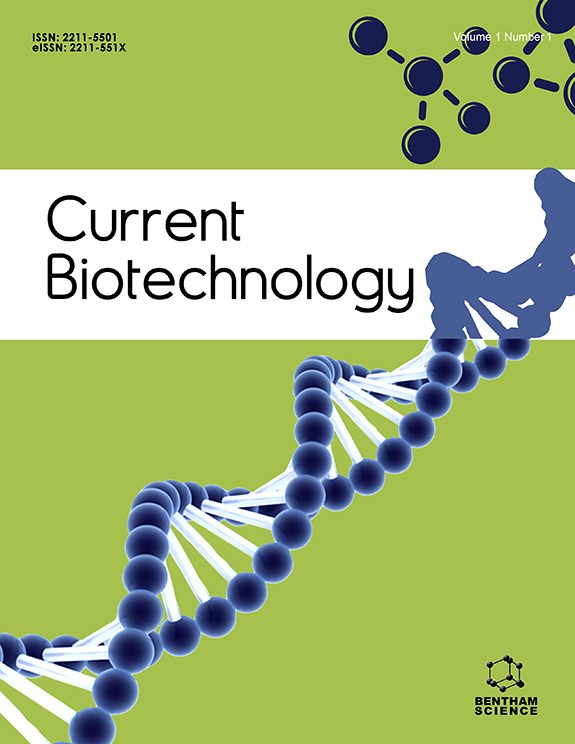
Current Biotechnology
Indexed in: Cabell's Directory/Journalytics
View AllTopics covered include:
- Agricultural And Plant Biotechnology
- Analytical Biotechnology
- Biochemical Engineering
- Bioinformatics
- Biostatistics
- Bioenergy
- Bioethics
- Biological Engineering
- Biomarkers
- Biomaterials And Bioproducts
- Biomedical Engineering Related To Biotechnology
- Biomining And Bioremediation
- Bionanotechnology
- Biopolymers
- Biorobotics
- Biosensors
- Chemical Biotechnology
- Environmental Biotechnology
- Food Biotechnology
- Healthcare Biotechnology
- Imaging Technology And Large Scale Biology
- Instrumentation
- Industrial Biotechnology
- Life Detection Technology
- Medical Biotechnology
- Metabolic Engineering
- Microbial Biotechnology
- Molecular Therapy
- Omics Technologies: Genomics, Transcriptomics, Proteomics, And Metabolomics
- Pharmaceutical Biotechnology
- Regenerative Medicine
- Space Biotechnology
- Synthetic Biology
- Systems Biology
- Tissue And Cell Engineering
Editor-in-Chief:
-
Eduardo Jacob-Lopes Food Science and Technology Department
Federal University of Santa Maria
Santa Maria
Brazil
ISSN: 2211-5501 (Print)
eISSN: 2211-551X (Online)



